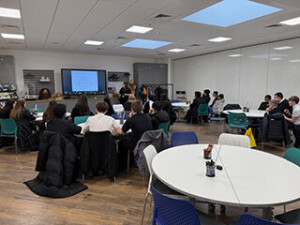Business Studies

CURRICULUM ETHOS
The Business Studies curriculum at Eastbrook School develops ambitious, reflective and enterprising learners who can think critically about how organisations operate in a dynamic and interconnected world.
It embodies the school’s Character and Academics vision, ensuring that every student leaves with the confidence, integrity, and analytical skills needed to succeed in education, employment, and life beyond school. Students learn how real businesses start, grow, and adapt to change, while exploring ethical, financial, and global considerations. The curriculum builds problem-solving, leadership, and decision-making skills, preparing students to become responsible, creative and informed contributors to society.
The Business Studies Curriculum in Summary
At Key Stage 4, students follow the Edexcel GCSE Business course. They explore entrepreneurship, ownership, market research, the marketing mix, human resources, finance, and external influences such as ethics and the economy. The course develops commercial awareness and analytical writing through real-world case studies, teamwork, and evaluative questioning.
At Key Stage 5, learners study the Pearson BTEC Level 3 National Extended Certificate in Business (single award). The qualification blends practical and theoretical learning through four key units:
Year 12: Unit 2 Developing a Marketing Campaign and Unit 14 Investigating Customer Service
Year 13: Unit 1 Exploring Business and Unit 3 Personal and Business Finance
This progression ensures that students build a strong foundation in enterprise, marketing, and financial management, preparing them for university, apprenticeships and the world of work.
An All-Through Curriculum
The secondary Business Studies curriculum builds on the enterprise and financial literacy skills introduced in primary PSHE, mathematics and computing. Students entering Year 10 already understand basic economic terms such as spending, saving, and budgeting from their primary experiences. At secondary level, this knowledge is developed into more complex financial and business concepts — such as cash flow, entrepreneurship, and marketing strategy. Through teamwork and communication activities, students strengthen the collaboration and problem-solving skills developed in primary school. This ensures a smooth transition from general economic understanding to applied business decision-making.
Diversity and Inclusion in the Business Studies Curriculum
Diversity and inclusion are central to the Business curriculum. Lessons and resources are designed to reflect modern Britain and global enterprise. For example:
- When studying market segmentation in Year 10, students explore how inclusive brands such as Fenty Beauty meet diverse consumer needs.
- In branding and entrepreneurship topics in Year 11, learners examine Levi Roots and Black Pound Day as examples of innovation and representation in business.
- Across KS4 and KS5, students evaluate how diversity, equality, and ethical behaviour drive business success in recruitment, leadership, and marketing.
By embedding diverse case studies and discussions, students recognise that success in business can come from people of all backgrounds, cultures, and identities — promoting Black Excellence and celebrating representation throughout the curriculum.
Cultural Capital and Enrichment in the Business Studies Curriculum
Business Studies at Eastbrook extends beyond the classroom through a rich programme of in-house enrichment activities designed to build employability and real-world understanding. Students take part in enterprise challenges, mock product pitches, and budgeting simulations that mirror authentic business practice. Learners analyse current economic events and business news, linking theory to real-world examples. Cross-curricular activities with Mathematics and Computing reinforce data analysis, digital marketing, and financial literacy skills. These opportunities align with the Gatsby Benchmarks by connecting classroom learning with career insight, developing students’ leadership, teamwork, and problem-solving skills for life beyond school.
Literacy and Oracy in the Business Studies Curriculum
Literacy and oracy are embedded throughout the Business curriculum.
- Literacy: Students are explicitly taught key terminology and structured writing techniques to explain, analyse, and evaluate business concepts. They use glossaries, flash cards, and extended writing frames to produce balanced arguments in both exams and coursework.
- Oracy: Speaking and listening are integral to classroom learning. Students deliver presentations, role-play interviews, and participate in discussions that mirror professional business communication.
Assessment tasks across both GCSE and BTEC courses require students to justify decisions, interpret data, and articulate their reasoning clearly — strengthening their written and verbal fluency and preparing them for the demands of higher education and employment.

